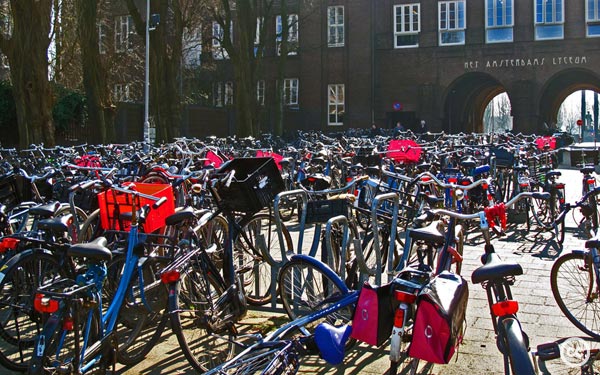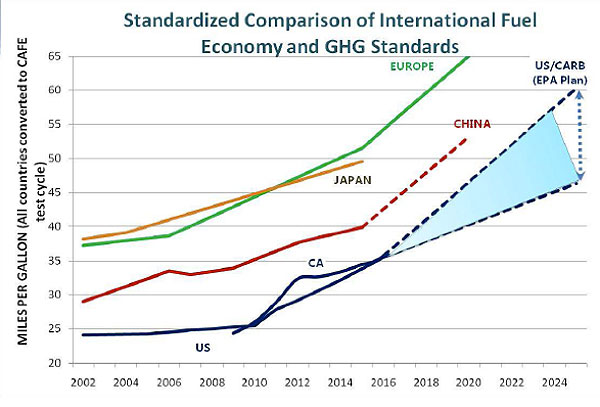
If there's one thing that all Americans pretty much agree on, it's that we hate paying high prices for gasoline. Eighty-five percent of us hate it so much in fact that we think the President and Congress ought to do something about it. With gas selling at $4 a gallon and rising, no wonder this has become THE primary GOP talking point to support a radical agenda of increased domestic oil exploitation.
Most of the debate (if you can call the mudslinging which passes for political discourse in this country a debate) is focused on what role, if any, the president can and should have played to ease the price at the pump.
Should President Obama have approved the Keystone XL pipeline? No. Quite apart from the climate and environmental damage caused by tar sands exploitation, the pipeline could actually cause gas prices to go UP in some regions.
Should he have increased domestic oil production? Well, actually, he did that, but gasoline prices are tied to the price of oil, and the price of oil is established by the global market. Even an all-out "Drill, Baby Drill" offensive would have little impact at the pump according to economists who span the political divide.
So let's stop pretending that a massive expansion of domestic drilling, or building the Keystone XL pipeline, would do anything to alleviate gasoline prices. As Peter Van Doren and Jerry Taylor of the Libertarian Cato Institute explain:
More domestic oil creates the possibility of fewer refined imports tied to the price of Brent crude, but given that the price of Brent sets the price for crude generally, the result would be more profit for domestic crude producers rather than significantly lower gasoline prices for Americans (not that there's anything wrong with that).
Just what the oil companies need... more profits. As reported on Climate Progress last month:
BP, Chevron, ConocoPhillips, ExxonMobil, and Royal Dutch Shell -- yielded lower oil production than in 2010. But these five oil companies combined made a record-high $137 billion in profits in 2011 -- up 75 percent from 2010 -- and have made more than $1 trillion in profits from 2001 through 2011.
"How to Boost the Price of Gasoline to the levels in Europe"
Which brings me to the recent kerfuffle over a comment made by Energy Secretary Steven Chu in 2008, before he joined the administration and was still allowed to make astute observations on their merits: "...somehow, we have to figure out how to boost the price of gasoline to the levels in Europe."
Election year rhetoric aside, what precisely is wrong with Chu's statement? As one expert says, (PDF):
The United States consumed more petroleum-based liquid fuel per capita than any other OECD-high-income country, 30 percent more than the second-highest country (Canada) and 40 percent more than the third-highest (Luxemburg). The transportation sector accounts for 70 percent of U.S. oil consumption and 30 percent of U.S. greenhouse gas emissions.
In contrast, European CO2 emissions from road transportation are just over half those of the U.S. (PDF).
A quick search on Google suggests that pre-Secretary Chu and I are not alone in thinking that American gasoline prices are actually too low.
There must be at least five or 10 of us out there, though it must be said our reasons for encouraging conservation vary -- protection of the environment/climate, dependence on unstable or hostile Middle East regimes, concerns about oil as a finite resource, to name a few.
The fact is Americans pay less for gasoline than virtually any other OECD country, while Europeans generally pay amongst the highest prices in the world -- not just amongst OECD countries but amongst all countries.
How badly do Europeans suffer as a result, you ask?
You may be surprised to find that at least by American standards, Europeans don't complain that much. Where I live, in Amsterdam, gasoline is selling at around $8.50 gallon. But it simply doesn't feature on the political agenda here. People are far more worried about the overall economic situation, jobs, and budget cuts. Maybe it's just a pragmatic acceptance of the "new normal" -- does anyone really believe that oil is likely to get cheaper in the future?
 Creative Commons: Kelly Rigg, TckTckTck, 2012
Creative Commons: Kelly Rigg, TckTckTck, 2012
Maybe you think that Europeans are simply more stoical than Americans. But a comparison of American and European GDP suggests that gasoline prices have little bearing on wealth. Countries such as Luxembourg and Norway have comparable levels of GDP to the U.S., while paying roughly twice as much to fill their tanks.
There's no correlation between gasoline prices and quality of life either. The OECD has a nifty little tool to compare this on the basis of several factors, and there doesn't appear to be any connection between low gas prices and high quality of life, even when data for income and jobs is weighted more heavily than other factors.
Fuel Efficiency
Living in a city like Amsterdam, I don't need to own a car. It's inconvenient at times but I can get everywhere I need to go by train, bus or bicycle and the occasional rented car. For some people, however, there's just no avoiding it (especially if you don't live in a city). This means fuel efficiency is key, and comparing the fuel economies of European and American automobiles is illustrative here as well (PDF):
 Public Domain: United Nations DESA, 2011
Public Domain: United Nations DESA, 2011
So why do we see such outrage about gas prices in the U.S. and relative complacency in Western Europe? I'm not an economist or a sociologist, but the answer seems fairly obvious. Europeans pay a lot more for gas, but they use a lot less of it. Or, more precisely, Europeans pay more for gas and therefore they use less of it.
There would appear to be two simple solutions to alleviating pain at the U.S. pump, with a host of beneficial side effects: drive less, and/or drive more fuel-efficient vehicles. Getting people out of their cars requires state and federal governments to do what Europeans did decades ago -- invest in public transportation alternatives, or as it's described on the TckTckTck website, Transportation 2.0.
In the meantime, as Americans adjust to the new normal, other policies can be adopted to alleviate hardship for those living at the economic margins. Let's not sacrifice the well-being of people and natural resources -- like oceans, coastlines, groundwater or the climate -- for the privilege of boosting the already-obscene profits of oil companies.
